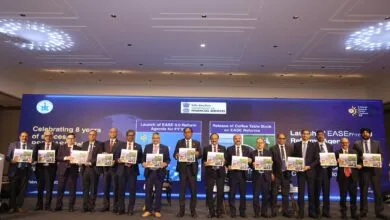J&K Bank has created Banking Monopoly in Jammu and Kashmir? CCI rules in favor of Bank

The Competition Commission of India (CCI) has dismissed a complaint against Jammu and Kashmir Bank (J&K Bank), ruling that the bank did not engage in unfair or anti-competitive practices in the Union Territory of Jammu & Kashmir.
In an order dated April 30, the CCI panel—led by Chairperson Ravneet Kaur and Members Anil Agrawal and Deepak Anurag—stated that there was no valid case against the bank under Sections 3 and 4 of the Competition Act, which deal with anti-competitive agreements and abuse of dominance.
What was the complaint about?
The complaint was filed by Umar Javeed and Aaqib Javeed, who claimed that J&K Bank, being a leading bank in the region, used its dominant position unfairly. They alleged the bank had signed several agreements with both government and private organizations that limited customer choice and reduced competition.
For example, the complainants said that the bank had deals with government departments like the Government of J&K, Jammu University, Kashmir University, and J&K Police, requiring their employees to open salary accounts only with J&K Bank. They also pointed out that J&K Bank had exclusive loan partnerships with automobile dealers such as Royal Enfield, Maruti Suzuki, Tata Motors, and even with Hindustan Petroleum (HPCL), making it harder for customers to choose other banks for financing.
The complaint also included an incident from October 2022, where a Royal Enfield dealer reportedly refused to provide loan options from any bank other than J&K Bank. In another allegation, they claimed that the bank forced customers to buy a ₹15,000 fixed deposit for 10 years if they wanted to access a locker facility—something they argued was beyond Reserve Bank of India (RBI) rules.
Why did the CCI reject the complaint?
After reviewing all the documents, the CCI concluded that the bank did not break any competition laws. The Commission explained that it is common for organizations to choose a specific bank to handle salary accounts or banking services for their employees, and these decisions are usually made mutually and by agreement between the parties involved.
Regarding the 2018 agreement between the J&K Government and J&K Bank, the CCI said the aim was to provide better, smoother, and personalized banking services to government employees, and that this kind of arrangement does not automatically harm competition or break the law.
On the issue of exclusive loan tie-ups with vehicle dealers, the Commission clarified that such agreements are not automatically considered anti-competitive, as long as they don’t negatively impact the overall market competition.
For the locker facility allegation, the CCI noted that there was no solid proof that J&K Bank forced customers to open a ₹15,000 fixed deposit to get a locker. The bank’s official procedures also did not mention any such requirement. Therefore, the Commission believed this claim was misunderstood or incorrectly presented.
In its decision, the Commission stated:
“Issues like these usually do not fall under competition law because they do not raise concerns that need action under the Act.”
The CCI also added that a problem with a bank’s service quality or failure to follow banking norms is not the same as violating competition law.
Final decision
With no clear evidence of anti-competitive behavior, the Competition Commission of India dismissed the complaint against J&K Bank.
This decision highlights that exclusive banking partnerships or service agreements, by themselves, are not necessarily anti-competitive, as long as they don’t seriously harm market competition or customer choice.
